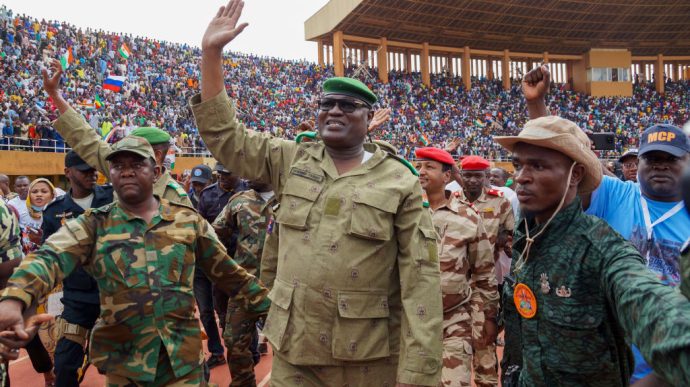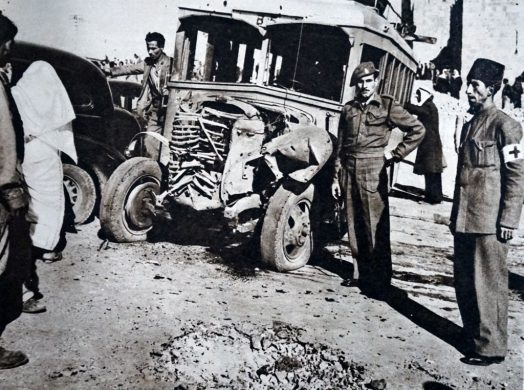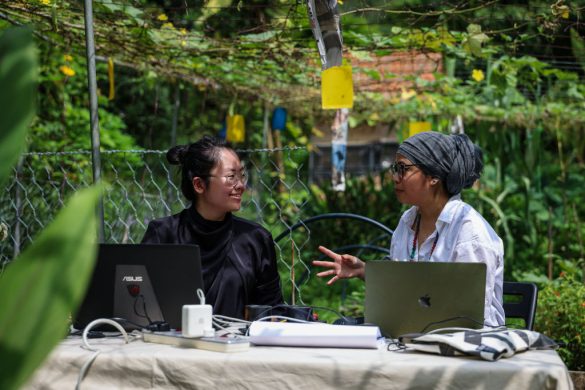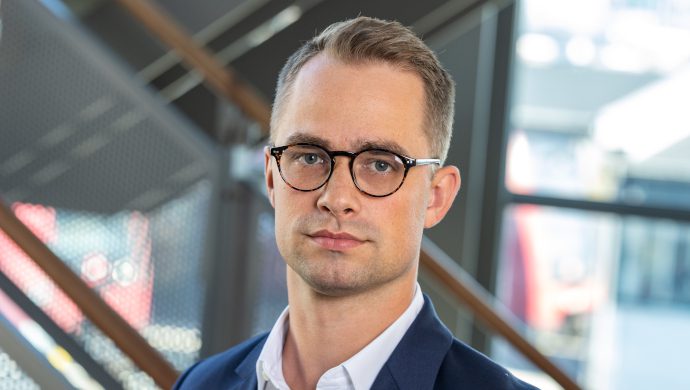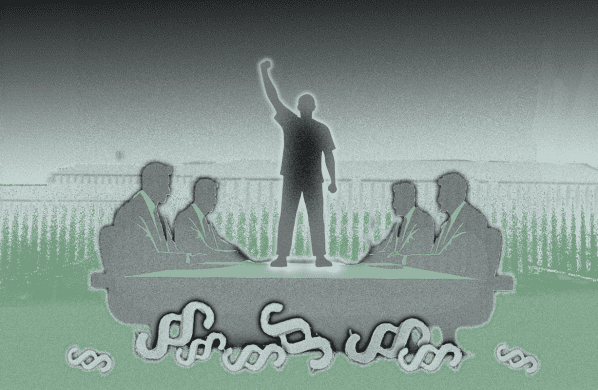KINSHASA, 27 July (IRIN): Logistical problems with Sundays general elections in the Democratic Republic of Congo and reports that security forces are violating the human rights of candidates and their supporters will not delay the vote, according to the Independent Electoral Commission and the international community supporting it.
– We have indeed seen very negative things that are contrary to the spirit of a democratic process and we do not accept them, Ross Mountain, the UN Secretary-Generals Deputy Special Representative in the DR Congo, said in Kinshasa Wednesday, adding: – But one cannot condemn the whole process for a few acts.
He was responding to complaints that many candidates had been blocked from campaigning. Out of the 33 candidates running for president, 20 are demanding that the elections be postponed because of irregularities.
One candidate, Oscar Kashala, said he had been unable to start his campaign for two weeks because local aviation authorities grounded planes he had leased to campaign in remote areas.
The government also deported Kashalas international security guards and lawyer, accusing them of planning a coup d’etat.
– They had no proof. It was an invention by a faction of the government close to (President Joseph) Kabila. One cannot go to unsafe areas in the east without protection, he told IRIN recently.
The director of the Human Rights Division of the UN Mission in the DRC (MONUC), Fernando Castanon, has condemned the behaviour of government security forces during the campaign.
Earlier in July, he said the national intelligence agency, known as the Agence nationale de renseignement, was harassing people both with and without voter registration cards, assuming “duties which they are not authorised to carry out by law”.
He said security forces had been arresting and intimidating journalists, and one, Babuwa Muamba, was shot dead in his Kinshasa home on 8 July by armed men in uniform. Muamba had written articles critical of Kabila and the election process.
Castanon also criticised the mayor of the eastern city of Goma, Polydore Wundi Kwavwirwa, who ordered that anti-election demonstrators be dispersed.
– Such actions which prevent a march from taking place undermine the right to self expression, and are against the law, Castanon said.
Wundi had said he would not allow any demonstrations defaming the elections, MONUC human rights officer Alexander Sophocleous said on Thursday. However, Wundi told IRIN he had now decided to allow all demonstrations as long as organisers gave him the required notice.
With just days to go until the elections, there have been fewer reports of intimidation by security forces and local authorities. They are coming to accept how an election process works, Castanon said.
However, for many candidates, it is already too late. The independent media authority has barred six television stations, including the state-owned Congolese National Radio Television, from covering the campaign, saying they repeatedly breached the election broadcasting code with biased coverage.
On Thursday, the head of the Roman Catholic Church in the DR Congo, Archbishop Laurent Monsengwo Pasinya, said despite “many flaws”, the population should go out on Sunday and vote “massively”.
He had threatened to call on voters to boycott and not recognise the results unless the electoral commission resolved the many irregularities.
Ambassadors and other international leaders in Kinshasa issued a joint statement on Monday, which, although strongly supporting the elections, also called on the electoral commission to “respond quickly to criticisms or questions on alleged irregularities, each time they occur”.
One complaint has been that the commission has lost the names of at least 1,2 million out of the huge countrys 25,7 million registered voters. The head of the commission, Apollinaire Malumalu, said the problem would not undermine the elections.
– Everyone with a voter card will still be able to vote even if their name is not on the list, he said.
Each card contains a photo of the voter and a unique index number that can still be used as a cross-check, although there are reports of fake cards.
So far, the commission has failed to provide a final list of voters. Malumalu had told IRIN in May, “We will make the list available 30 days before the first round of elections.”
On 21 July, he said the list would be made public before the elections but as of Thursday it had still not appeared.
The church and many candidates have complained that up to seven million extra ballots have been printed and could be used to stuff ballot boxes. The commission said there were only 2,5 million extra ballots and that they were necessary for contingency planning.
That has not placated (formildet) the thousands of protesters in Kinshasa and other cities. – We cannot have elections like these, said Raoul Nsolwa, a supporter of the opposition Union pour la démocratie et le progrès social, which is not participating in the elections, while taking part in protests on Tuesday.
– There is no transparency. The result has already been decided in advance, he added.
However, the international community says the many problems do not reflect the process as a whole. – In general the approach is transparent, said the UNs Ross Mountain, adding: – This is the first democratic election in over 40 years, we know there will be imperfections.
He noted: – It is the largest election in the world that the UN has ever supported in a country the size of Western Europe.
It is also the most difficult in a country with few roads. MONUC has helped put in place at least 50.000 voting station. More than 1.200 international observers are expected to witness the election along with local NGOs and political parties.
Kilde: FN-bureauet IRINnews




